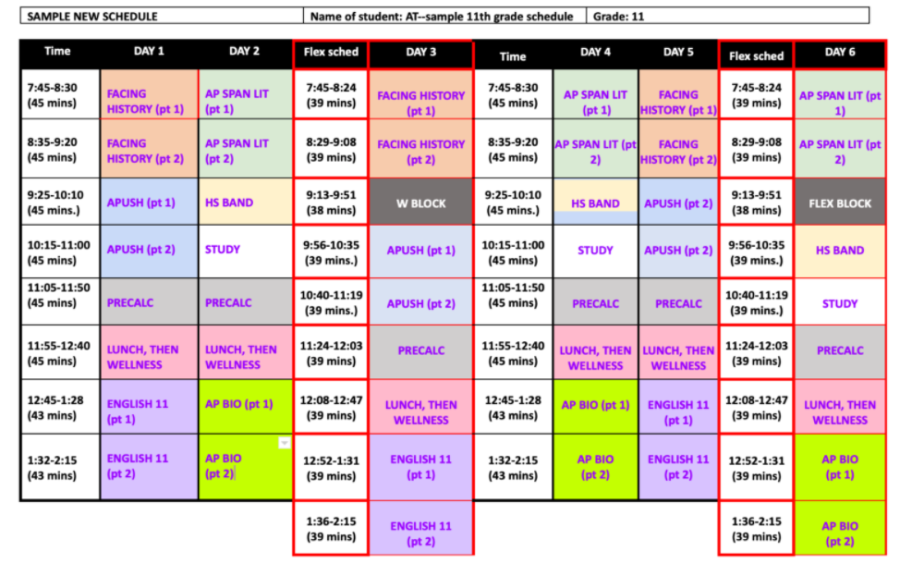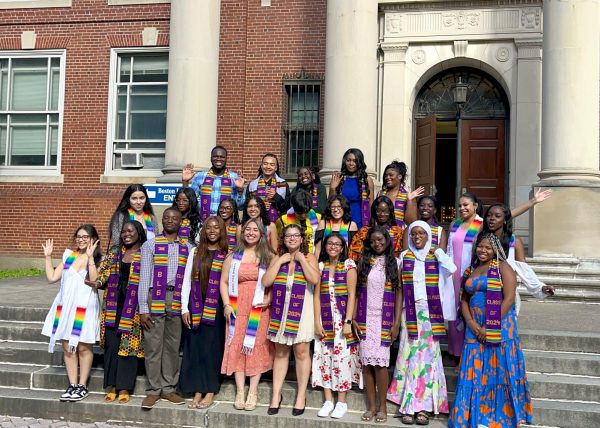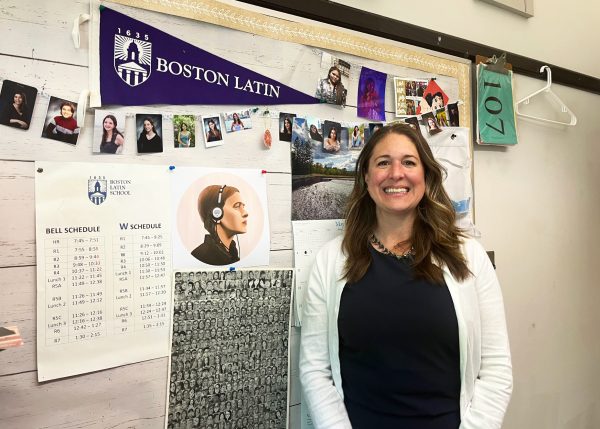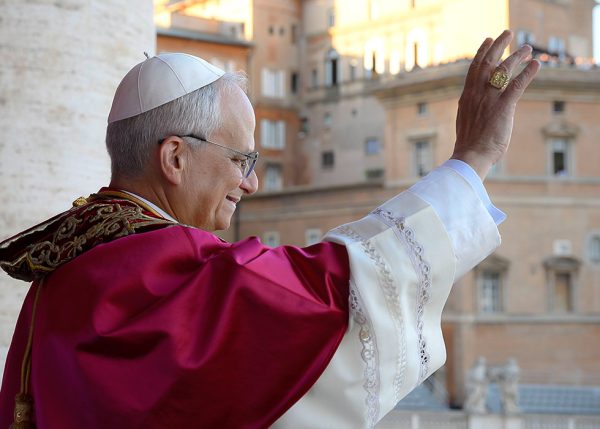Proposed Schedule-Change Fails to Pass
A sample schedule of a possible new model was presented to teachers last month. (Source: Ms. Judi Freeman)
On December 21, 2021, Boston Latin School faculty voted on a new proposed schedule for the 2022-2023 school year, which failed to pass.
A committee of 20 teachers, led by BLS physics teacher Mr. Aaron Osowiecki, developed a schedule with the aim of improving the learning environment at BLS. The proposal consists of a six-day cycle that includes longer lunch periods and wellness blocks. Perhaps one of the most striking differences is that certain classes would meet every other day for 90-minute periods.
Mr. Osowiecki first proposed the possibility of a new schedule to faculty members over four years ago, but few teachers showed interest. During the pandemic, however, many found that having fewer classes a day was beneficial for students’ learning.
In the remote learning model, most students had four classes per day and a Friday Flex block every week. As a result, teachers had more time with students and an easier time planning for classes.
Mr. Osowiecki incorporated these elements into his proposed schedule, and seeing that teachers had now experienced something similar to his model, he presented it to teachers last spring. No students, however, were involved in the development of the schedule, as Mr. Osowiecki wanted faculty approval before it was introduced to the student body.
BLS history teacher Mr. Brian Smith, an advocate for the new schedule, believes that the frequent transitions students and teachers currently undergo produce a hectic environment that is not beneficial to learning. He argues that students often have insufficient time to process material before moving on to their next class. Longer class periods would allow students to reflect upon the content they learned.
Many students agree that the current model is too fast-paced. Maya Koreth (IV) says, “Though I’ve gotten used to [the current schedule] over time, I can’t help but wish for some time to sit and gather my thoughts. Having a longer lunch and more time to hang out with friends would also be a great bonus.”
Teachers also face a dilemma with the current schedule. Mr. Smith, like many other faculty members, alternates between classrooms. He says, “It often takes too much time to set up. This leaves less time for instruction.”
Multiple students and staff, however, argue that longer class periods limit productivity. BLS Latin teacher Ms. Veronica Lau believes that the original schedule benefits her students more since she thinks most students will not stay actively engaged for a 90-minute class.
“Learning languages requires regular, daily instruction,” says Ms. Lau.
Mr. Jeremy Birkline, the only substitute teacher allowed to vote on the schedule, also believes that the new schedule would disrupt the availability of substitute teachers, an issue that has been highlighted by the recent increases in absent faculty.
Mr. Birkline points out that if certain teachers have longer class periods and others do not on a given day, a substitute would no longer be able to use a free period to cover for a teacher because the schedules may not allign. This creats a challenge for the administration to ensure coverage for teachers who are absent.
“Since daily substitutes did not even get a vote on this [schedule], this situation might discourage them from choosing to cover classes at this school,” says Mr. Birkline.
After several divisive weeks, faculty members voted on the schedule proposal on December 21 by submitting physical ballots. Those who were absent submitted their votes online. Ultimately, 51 teachers voted for the schedule change and 72 were against it, so it did not reach the two-thirds threshold needed for the schedule to pass.
Though those in support of the schedule are disappointed by the outcome of the vote, Mr. Osowiecki is hopeful that the BLS community will still create a new schedule that suits everyone’s needs. He plans to “return to the drawing board,” hopefully with more faculty support in the coming years.
Many, regardless of their stance on the schedule itself, agree that the schedule proposal uncovered issues with the democratic system at BLS.
Mr. Smith concludes, “I personally don’t think we had the best discussion about it as a full school community — including students’ and parents’ voices. Maybe we need to think about the way we hold a conversation this big and this important at the school first.”






